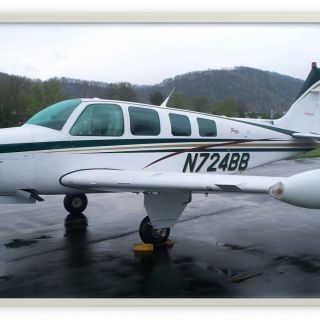
Faster, Farther, Safer
Aviation is a vital part of ministry in the Far North. Airplanes, like land-based vehicles, are made for various purposes. Our Beechcraft Bonanza is a longer range work-horse. In 2020, the Bonanza flew more than in 2019, covering an estimated 30,000+ miles in support of missionaries across Alaska. This was even without any trips to Canada, and very few Bible camp flights due to COVID restrictions
As SEND North continues to grow, it has become very apparent that we will need a second Bonanza airplane stationed in the Fairbanks area to effectively assist the ministry families in the northern and interior villages of the state. Right now, the airplane that is based in Fairbanks is slow and can only fly in ideal weather conditions. Because of these and other limitations, some ministry flights are not happening or must be canceled.
A second Bonanza will allow us to fly ministry workers in a plane that can safely handle most weather (because of its anti-icing system), and is 40% faster, making it more efficient than the current plane in Fairbanks. Adding a second Bonanza to the fleet will free up the slower plane for village-to-village ministry, where it will be much more useful.
Bonanzas are not cheap airplanes, but they are quality aircraft. One additional benefit is that, once we can get a new airplane in place, it can help the teammate’s personal funds stretch much further. For example, it would cost $1250 for five members of a ministry family to travel from their specific village to Fairbanks on a commercial plane. SEND North could fly that same family on our Bonanza for our operating costs of $865, and deliver 700 lbs of groceries and freight that would normally cost them over $1 per pound to ship. Between the freight and passenger prices, just one trip could save this family over $1100!
We are in the midst of our capital campaign project to raise funds for the second aircraft. Thanks to one generous donor, every dollar donated toward the purchase of the aircraft, between April 1 and September 30, 2021, will be matched, up to $100,000. If you feel led to give to this opportunity to grow this ministry, follow this link.
Additional Posts




